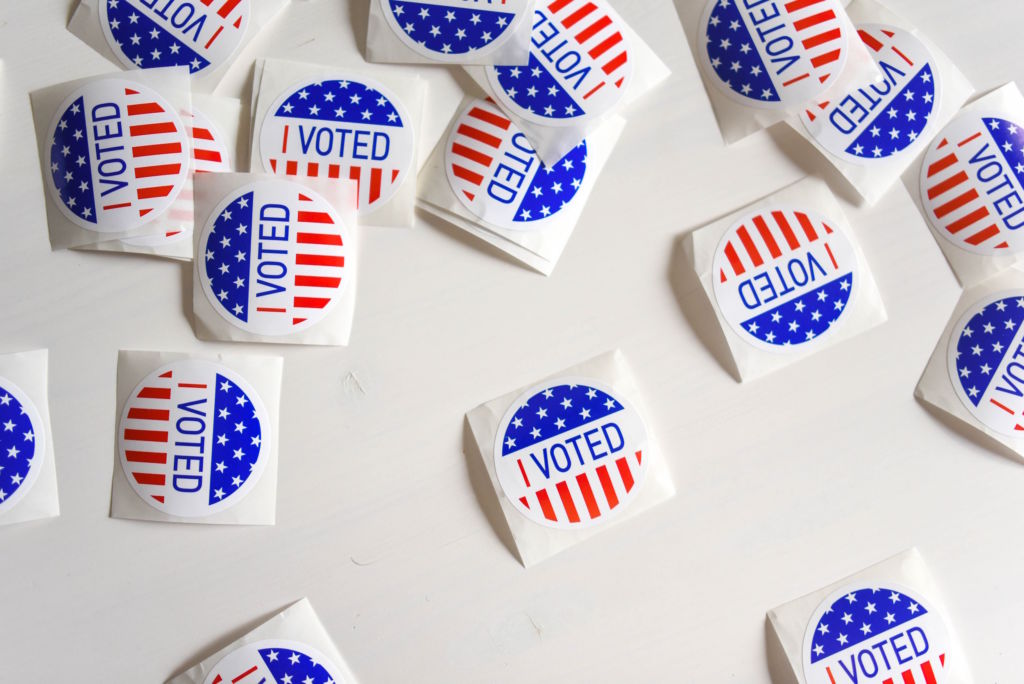The Right to Vote
By: Adam Edwards ’22 | Date: August 14, 2019

I work in voting rights. The lawyers I work with engage in voting rights battles, and as recently as this spring, the organization I interned with as a Sorensen Fellow, Common Cause, was fighting for voting rights before the Supreme Court in the case Rucho v. Common Cause. You may have heard of the final decision in that case, or you might not have, because our cause fizzled and died on the wet blanket that is the Supreme Court these days. It was a case about racial gerrymandering that was being done via partisan gerrymandering, which is currently allowed. Our argument was based in the 14th amendment’s equal protection clause.
If you’ve read the 14th amendment recently, you might be wondering why that amendment was plucked from the constitution to be the basis for a voting rights case. If you haven’t read it recently, the reason why it is confusing is that no mention of the right to vote is made in the 14th amendment. That raises a question though. If it’s not in the 14th amendment, where is it? It must be somewhere, right? As we know, whole legions of lawyers and areas of the law are dedicated to “voting rights”, and we know the term as one of the watchwords of the civil rights era and the current struggle against voter suppression. You may find yourself searching the constitution for those words. The 15th amendment requires that voting is not denied based on race, the 19th that it cannot be denied based on sex, and the 25th lowers the constitutionally minimum age to 18. But all of those amendments clearly lack the definitive statement we’re looking for. Why can’t you find it?
It’s because it isn’t there.
The Constitution does not grant you the right to vote. Oh, certainly the right to vote cannot be denied to you from a constitutional standpoint based on race or sex, but it can be denied based on age. It can be denied based on mental capacity. It can be denied based on conviction status.
If this comes as a shock to you, think about the titanic struggles that were fought in the 60’s over voting, all the voter ID laws today, and everything else that is done to keep people from voting. Could any of that be possible if all you needed to do to sue was to point to the relevant phrase in the constitution? “Your honor, this law infringes on my constitutionally enumerated right to vote.”
The cases are in fact byzantine in complexity, because no such argument is actually available. Instead, lawyers must rest primarily on the 14th amendment’s equal protection clause. Why? Because if the right to vote is granted to some, it cannot be denied to others under equal protection. If you didn’t know the bizarre tightrope our most cherished democratic custom rests on, now you know.
Every voting rights fight I’ve been involved with this summer since I started working with Common Cause has been a political fight. Voting rights are not enshrined in the constitution, and that is why every victory must be won not in the stuffy halls of legal analysis, but in the fire pit of the public arena. When we barnstormed Albany in June to ram through a change to when people can change their party enrollment in New York, we had to enlist powerful political players to back us up. We had to push through legislation with a proverbial sword at the back of left-leaning legislators. We had to bury our noses in letters and postcards and mailers and media clippings and take every opportunity to push the public in our direction. Because just as quickly as the public can be swayed to back democracy, it can be swayed against it, and there is nothing in the U.S. Constitution that stops the public from tearing the whole project down around our heads.
That is why at this moment in history, Democracy itself seems to teeter on the precipice. Whole swaths of the country are convincing themselves of dangerous lies about the electoral process. Massive breakthroughs in the fight to end democracy have been made in the last decade. At times it feels like all we can do these days is be firefighters, busying ourselves only with scurrying from one conflagration to the next, dousing the flames with marketing, lawsuits, and legislation. That can be a little disheartening.
But democracy is a self-sustaining beast. The more you feed it, the stronger it gets. The more people you enfranchise, the stronger the franchise gets. The more time you allow people to vote, the more powerful election results become. Because then elections are not merely the sorting of certain civically engaged and democratically privileged people, but rather they are the will of the masses. A true roar of the people that is undeniable in the power it grants to whatever side or whatever mandate was chosen. Then those leaders tie themselves to strong democracy, and thrive off of it. It is an upward spiral of suffrage and increased participation.
That is exactly what is about to happen in New York. This year, Common Cause and the Let NY Vote coalition pushed through early voting, consolidated primaries, e-poll books, portable registrations, no-excuse absentee voting, uniform polling hours, and much, much more. We are pushing back. Hard.
There may not be a right to vote, but as long as enough people stand up and demand it anyway, it will be there. It’s ours to lose.

